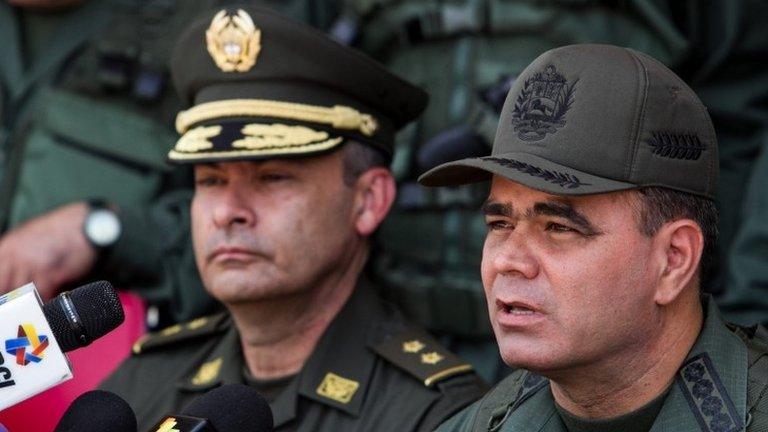Venezuela extends border closures with Colombia
- Published
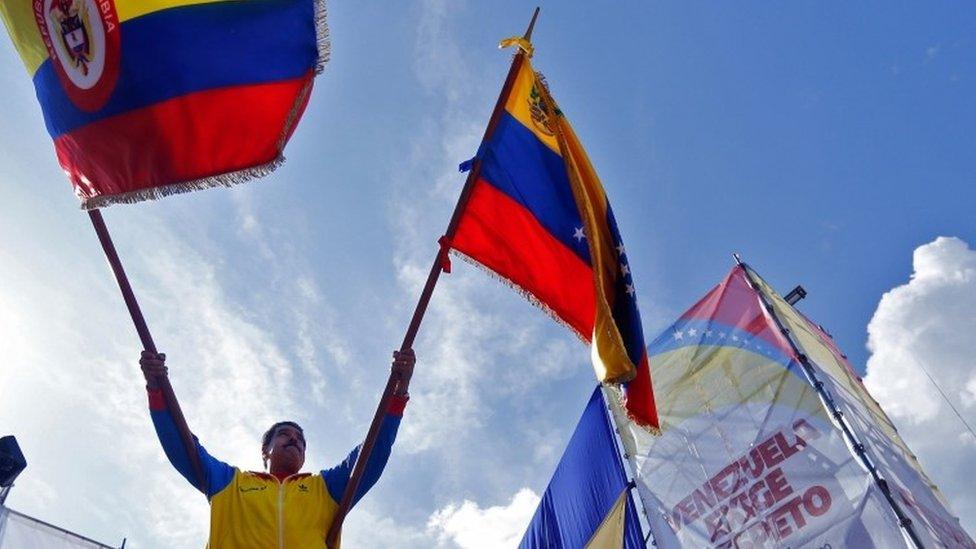
Nicolas Maduro waved the flags of Colombia and Venezuela during a rally in Caracas
Venezuelan President Nicolas Maduro has extended border closures with Colombia to another six towns in the western state of Tachira.
Mr Maduro also announced the deployment of an extra 3,000 troops in the area, which he says has been infiltrated by Colombian paramilitaries and gangs.
The main crossings were closed a week ago after Venezuelan soldiers were injured in a shootout with smugglers.
Colombian President Juan Manuel Santos criticised Mr Maduro's unilateral move.
More than 1,000 Colombians have been deported and about 6,000 have left in fear since the border closures.
'Sex slaves'
Mr Santos said the treatment of "ordinary Colombians" by its South American neighbour was "unacceptable".
But Mr Maduro said the security operation initiated a week ago has unveiled evidence that Colombian right-wing paramilitaries had infiltrated the area.
"To clean up the area from the paramilitaries and drug trafficking I have decide to close the border of another six towns in the state of Tachira: Lobatera, San Juan de Colon, La Fria, Garcia de Hevia, Panamericano and Coloncito," Mr Maduro said in a rally to his supporters in Caracas.
The border crossings will close at 05:00 local time (09:30 GMT).
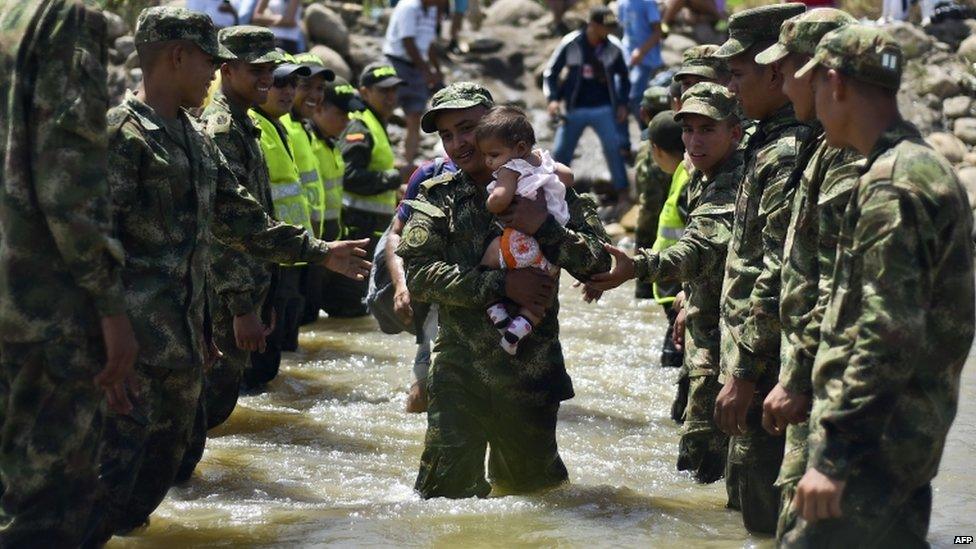
Soldiers have been helping Colombian families cross the Tachira river, which separates the two countries
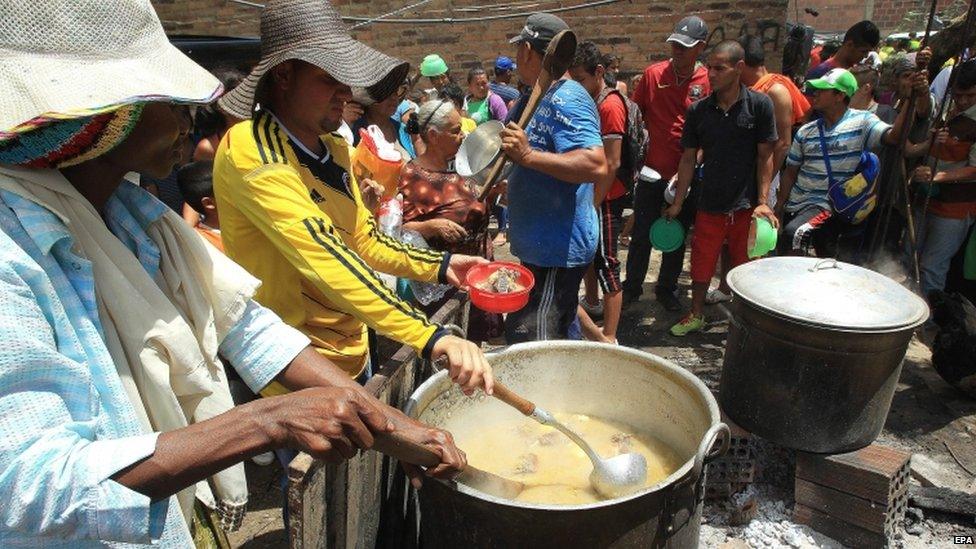
More than 1,000 Colombians were expelled from Venezuela over the past week
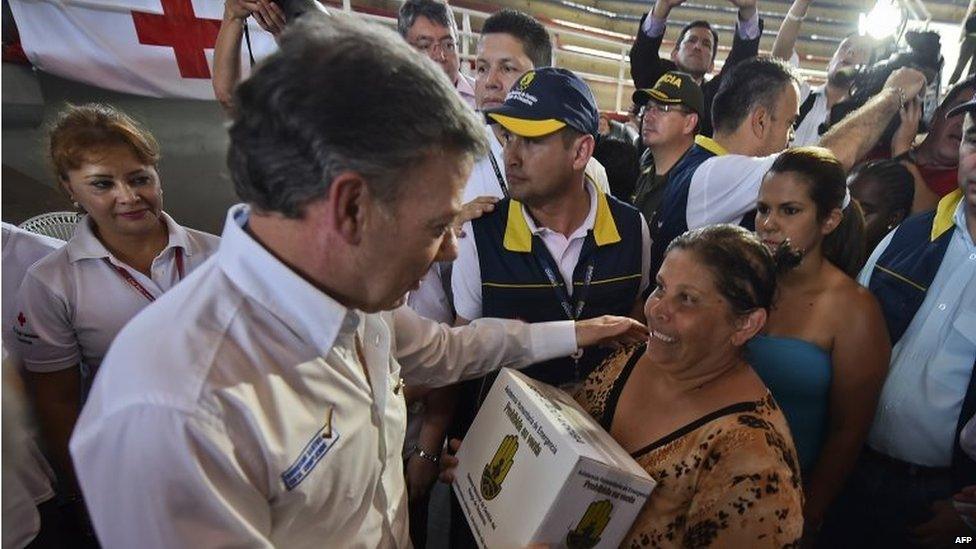
President Santos visited a shelter in the border city of Cucuta on Wednesday
Mr Maduro said soldiers had dismantled criminal gangs who had kept dozens of men as "economic slaves" and women as "sex slaves".
Smuggling has been a huge problem along the long, porous border area for many years.
Items subsidised by Venezuela's socialist government are sold over the border in Colombia with huge profit margins.
"Almost 80% of the people who enter [Venezuela] through the Colombian border come to take away all our petrol, our shampoo, the food of the Venezuelans, their soap, their meat, their milk and their medication," said Mr Maduro.
Mr Santos called for an emergency meeting of foreign ministers from the regional Unasur bloc to discuss the crisis. It will take place on 3 September in Ecuador.
On Thursday, Mr Santos recalled Colombia's ambassador to Caracas for consultations. The Venezuelan government followed suit later in the day.
But on Friday Mr Maduro said he was willing to have a face-to-face meeting with Mr Santos "wherever he wants, whenever he wants and however he wants".

- Published28 August 2015
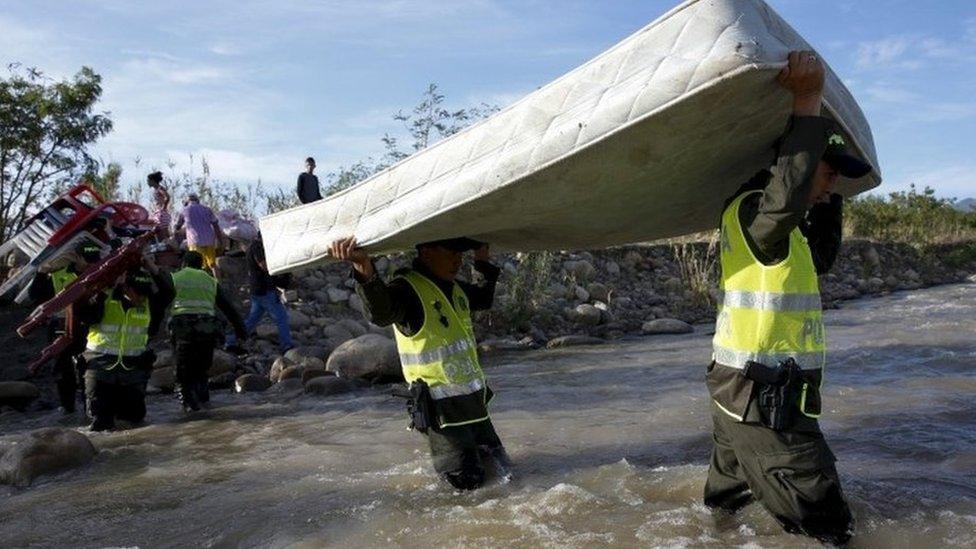
- Published27 August 2015
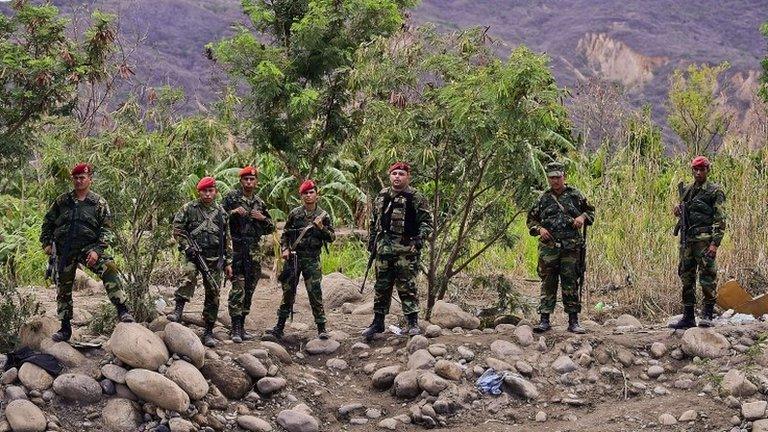
- Published26 August 2015
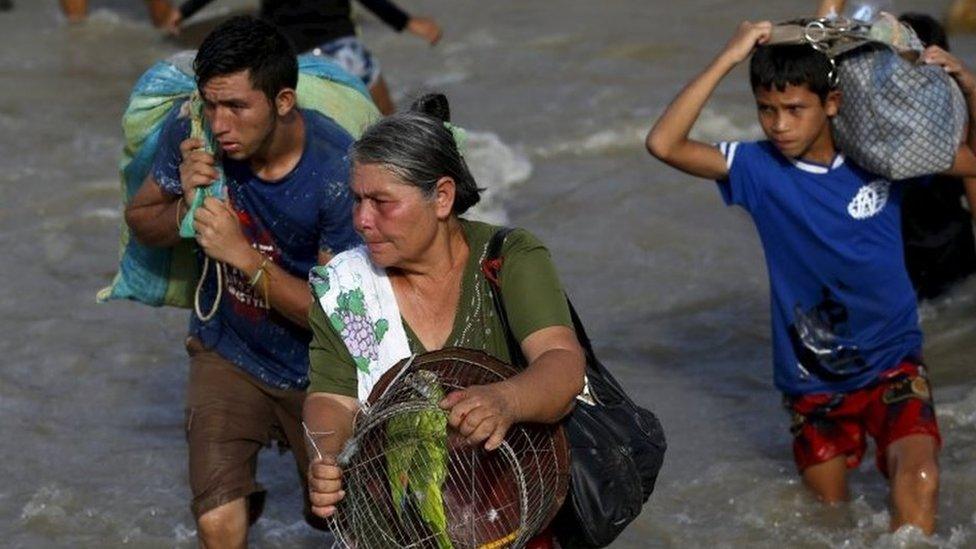
- Published12 August 2014
